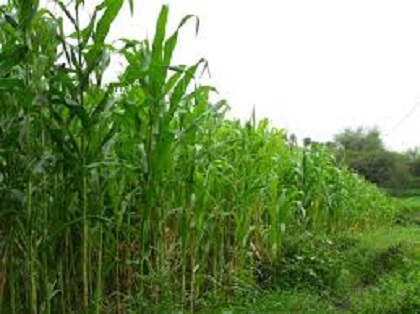Morocco-The world must rapidly move to scale up actions and ambitions on climate change FAO Director-General José Graziano da Silva told delegates at the United Nations Climate Change conference (COP22) in Morocco recently.
Speaking at the high-level action day on agriculture and food security, Graziano da Silva noted that climate change impacts on agriculture – including crops, livestock, forestry, fisheries, land and water – are already undermining global efforts to assure food security and nutrition.
With over 90 percent of countries referring to the important role of agriculture in their national plans to adapt to and mitigate climate change, Graziano da Silva stressed that
“it is time to invest in sustainable and climate-resilient agriculture as a fundamental part of the climate solution.”
Last year’s conference in Paris led to the world’s first legally binding global climate deal. The current summit in Marrakech, Morocco is geared to implementation of the pledges all signatory countries made. Echoing the prevalent spirit at the COP, the Paris Agreement is irreversible and inaction would be a disaster for the world.
Although agriculture contributes to nearly 20 percent of greenhouse gas emissions, it is a fundamental part of the solution to boost resilience and combat climate change impacts – especially in developing countries where agriculture is often the backbone of the economy.
Boosting agriculture can reduce malnutrition and poverty, create economic opportunities, and generate faster, fairer growth especially for young people.
Sustainable agriculture also improves the management of natural resources such as water; conserves biodiversity and ecosystem services; and increases carbon sequestration while easing the pressures that drive deforestation.
“We have to transform agriculture to make it more productive and more resilient at the same time. This transformation will help to address, at the same time, the triple threat of hunger, poverty and climate change,” FAO’s Director-General said. “Countries are recognizing this potential with unprecedented commitments.”
Scaling up international flows of climate finance and unlocking additional investment in adaptation in agricultural sectors is needed to give traction to the action, he added.
Featuring agriculture-focused initiatives, today’s special event co-organized by FAO and the Ministry of Agriculture of Morocco, is part of the Global Climate Action Agenda, led by the COP22 Climate Champions, Laurence Tubiana (France) and Hakima El Haité (Morocco), and aimed at joining and accelerating efforts by the public and private sectors to meet international climate goals.
In a bid to tackle the impact of global water scarcity, today FAO launched the Global Framework for Action to Cope with Water Scarcity in Agriculture in the Context of Climate Change.
Water scarcity – already a major global issue – will intensify with climate change and pressures linked to population growth. From California to China’s eastern provinces and from Jordan to the southern tip of Africa, an estimated four billion people – almost two-thirds of the global population – live with severe water shortages for at least some of the time.
Water scarcity “is one of the main challenges for sustainable agriculture,” Graziano da Silva said. “I invite countries and partners to join this initiative.”
At another high-profile side event, he hailed the timely launch of the Initiative in Favor for the Adaptation of African Agriculture, which is the Kingdom of Morocco’s flagship program and has been endorsed by 27 countries so far.
The so-called Triple A “will drive action in precisely the areas we need to transform the agriculture sectors” – sustainable land and soil management, better water management and comprehensive climate risk management – and FAO will collaborate strongly to scale up the initiative.
That will require larger climate finance flows for adaptation, and for agriculture in part cure, he said, noting that currently only two percent of climate finance is being directed at the agriculture sector. “That is extremely low, and quite below our needs,” he said.
Prepared By: Sh. Kh.

